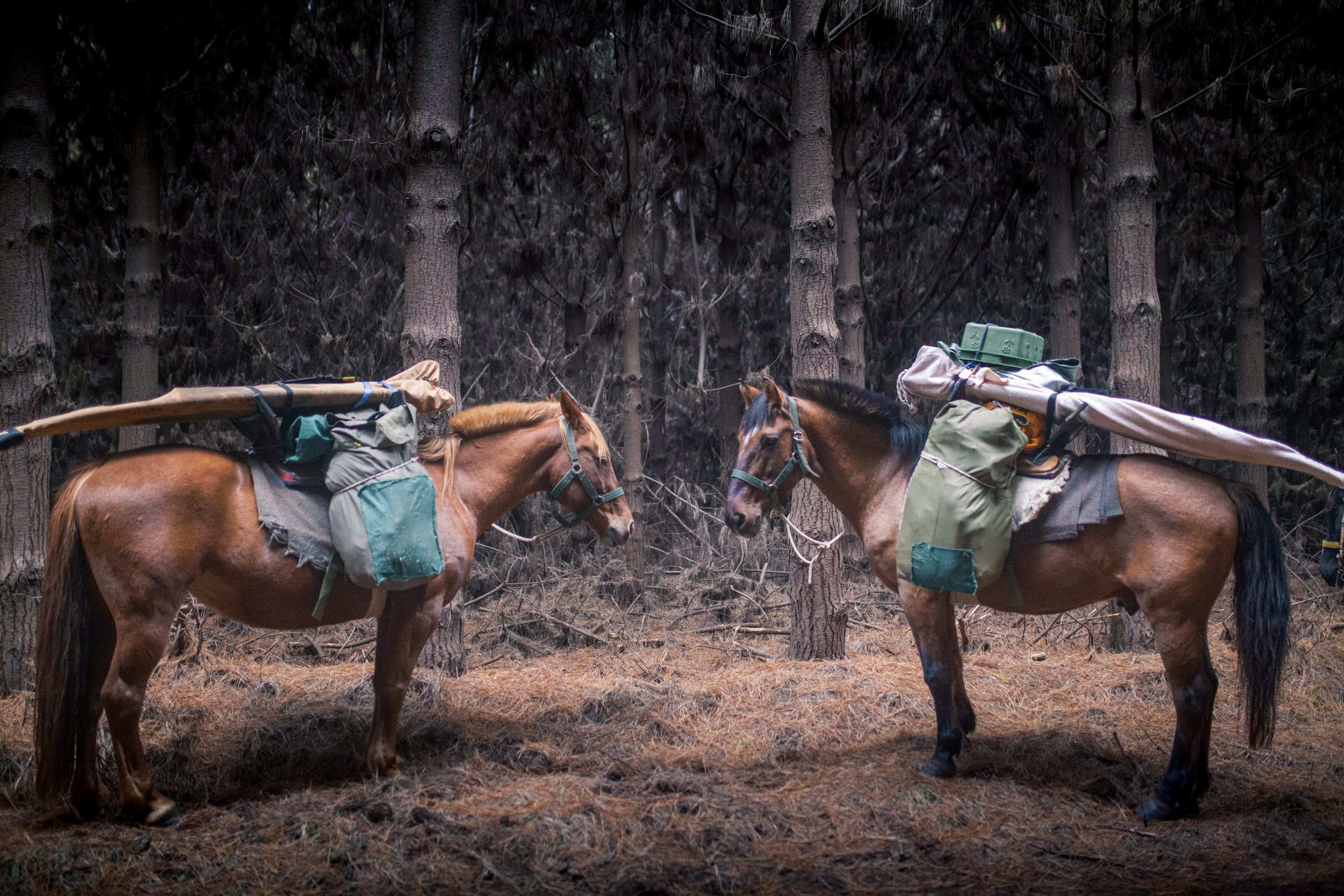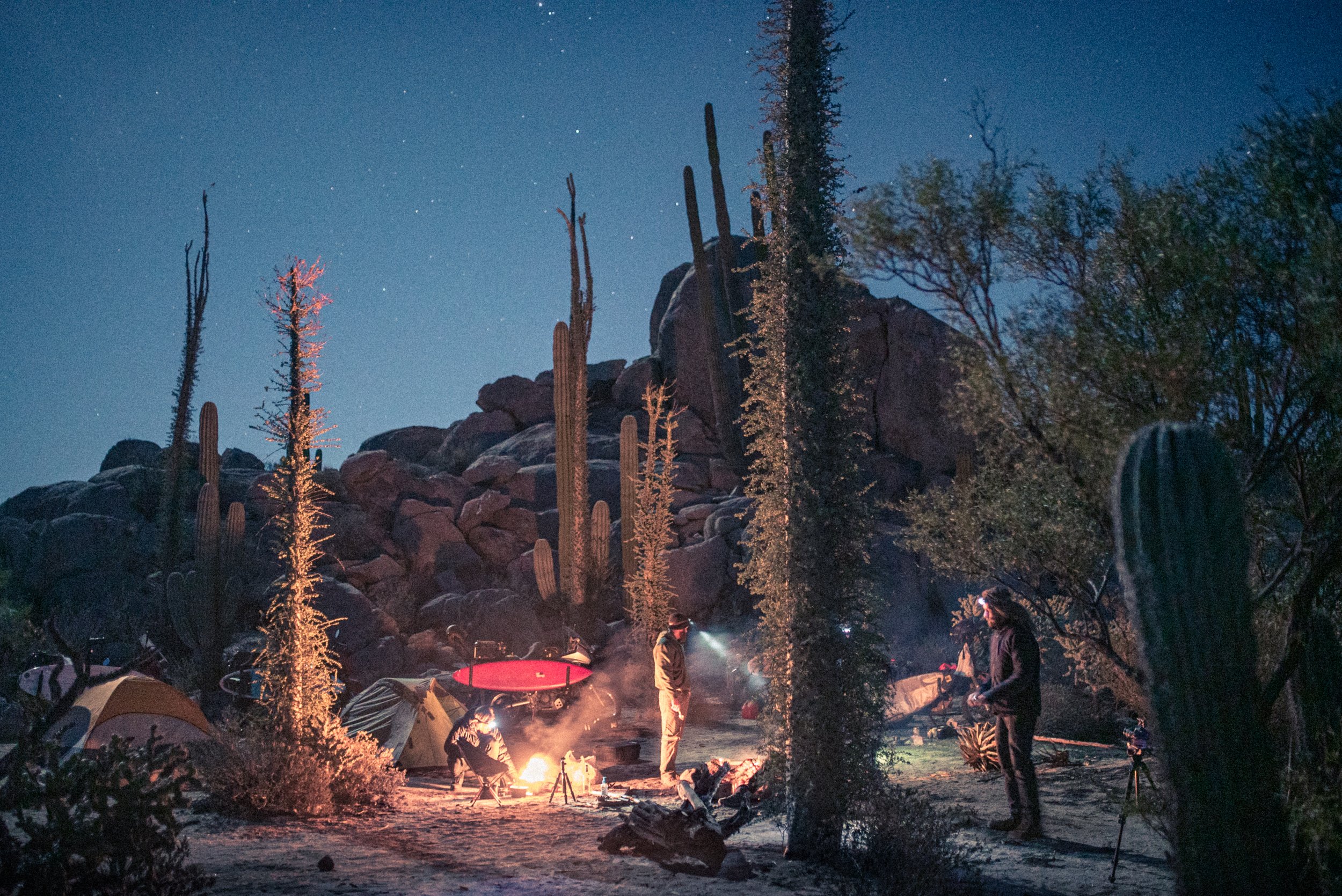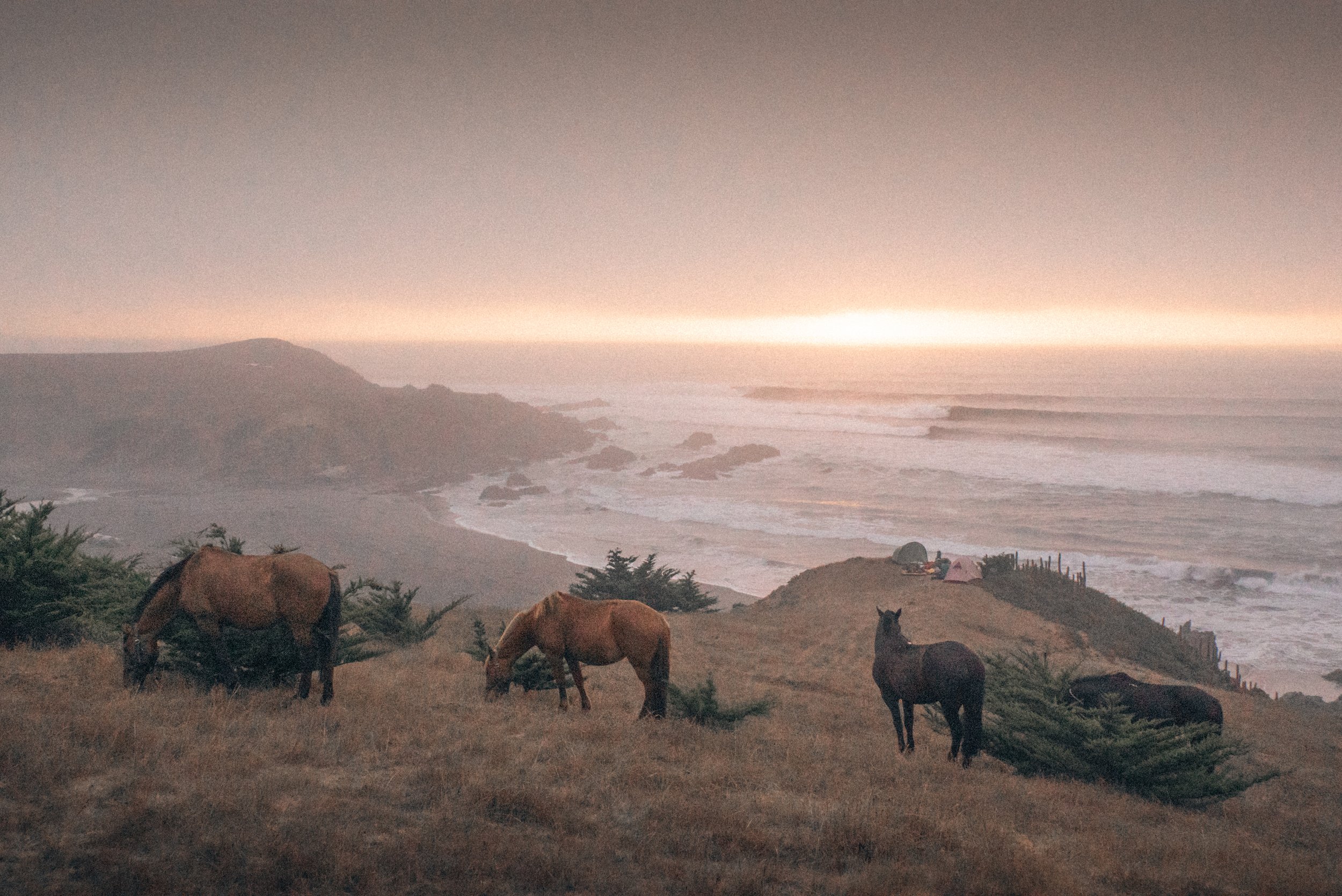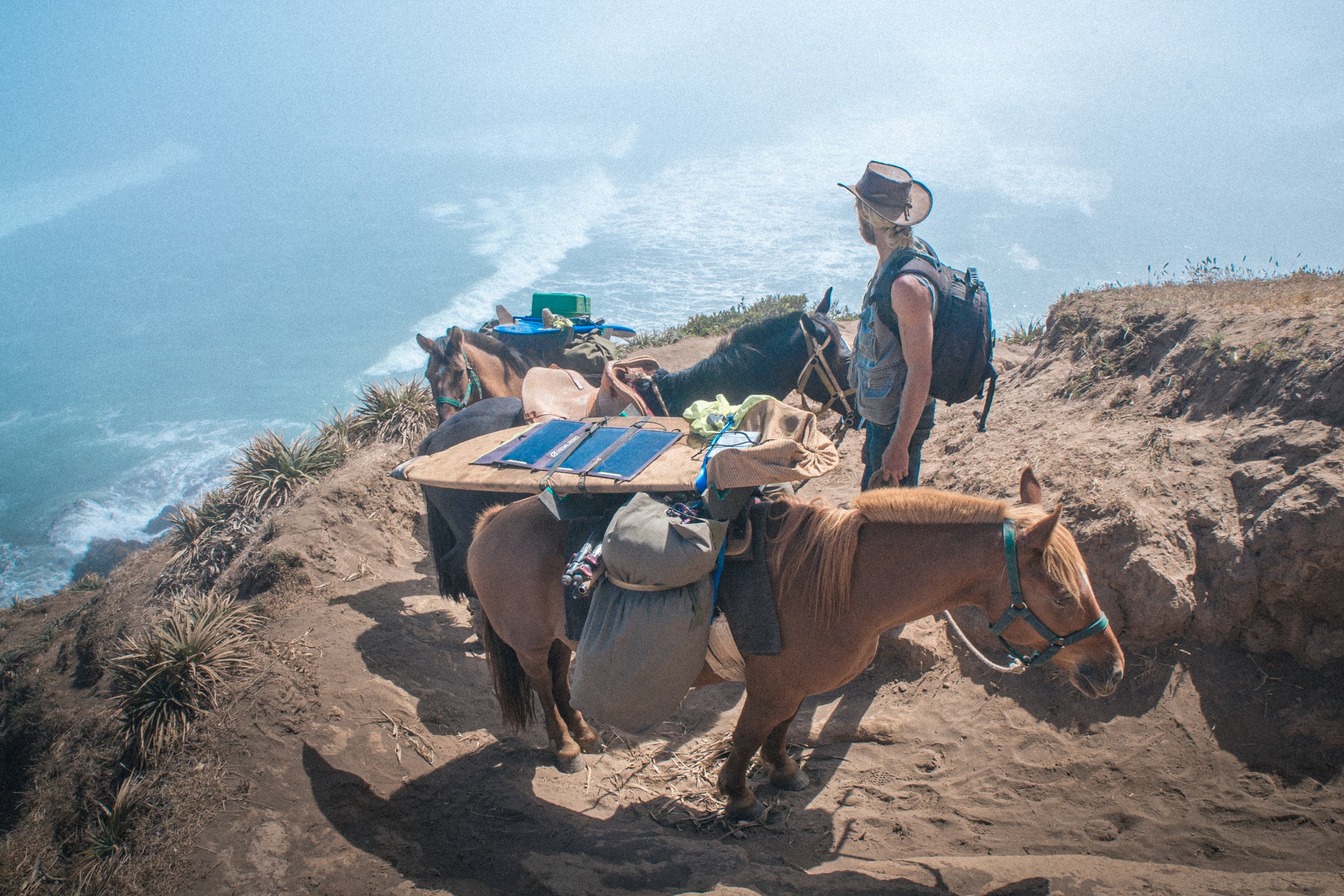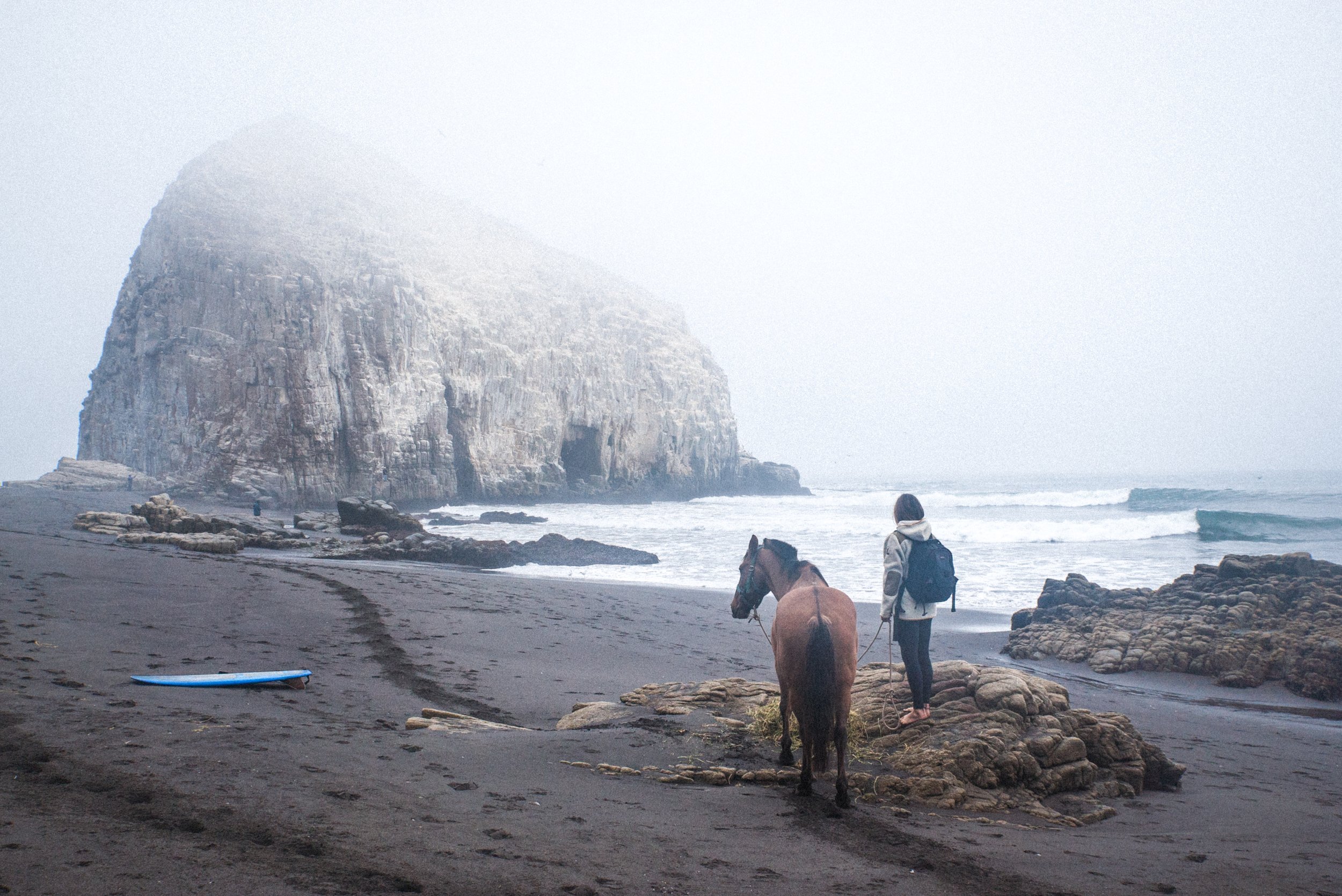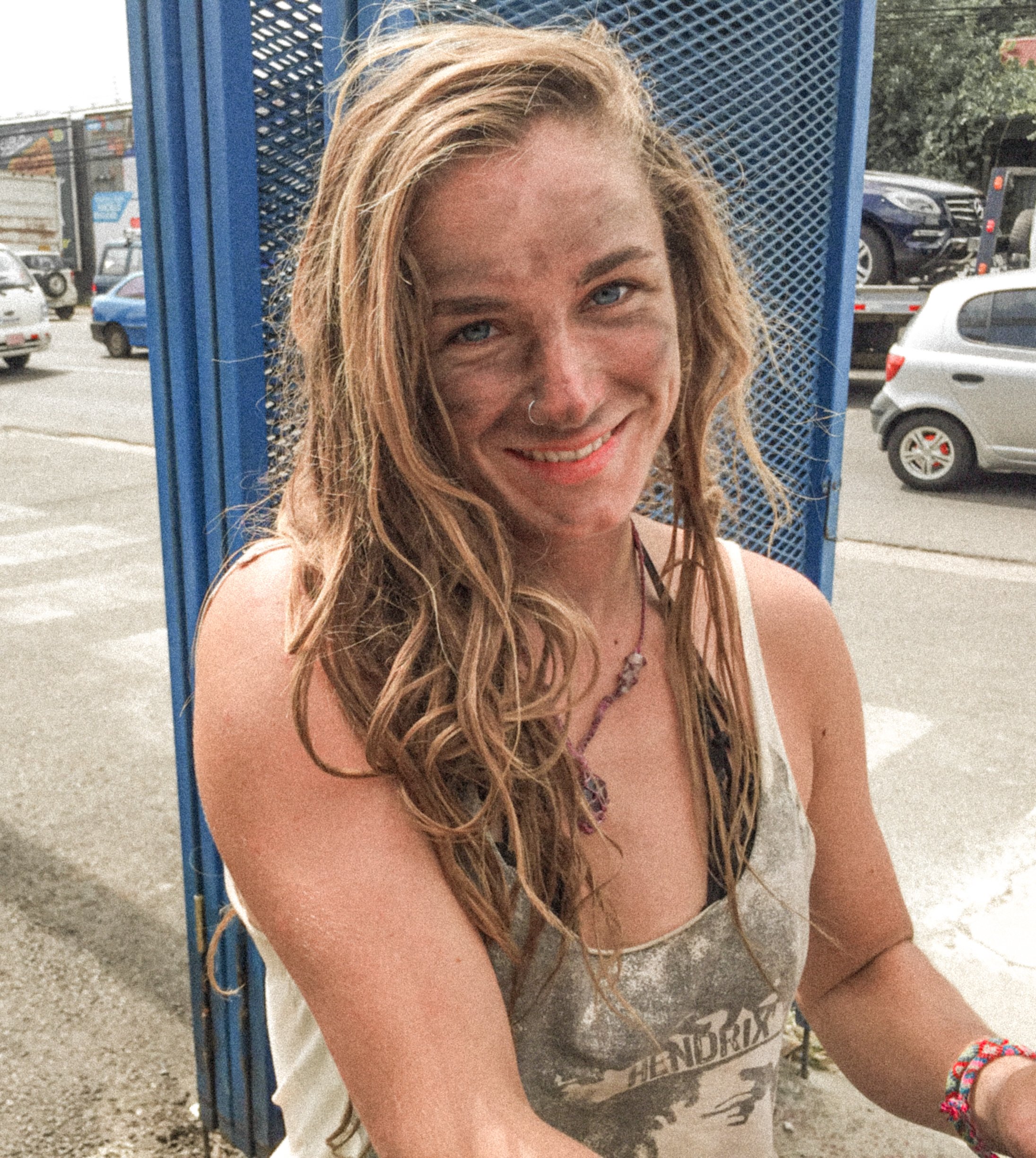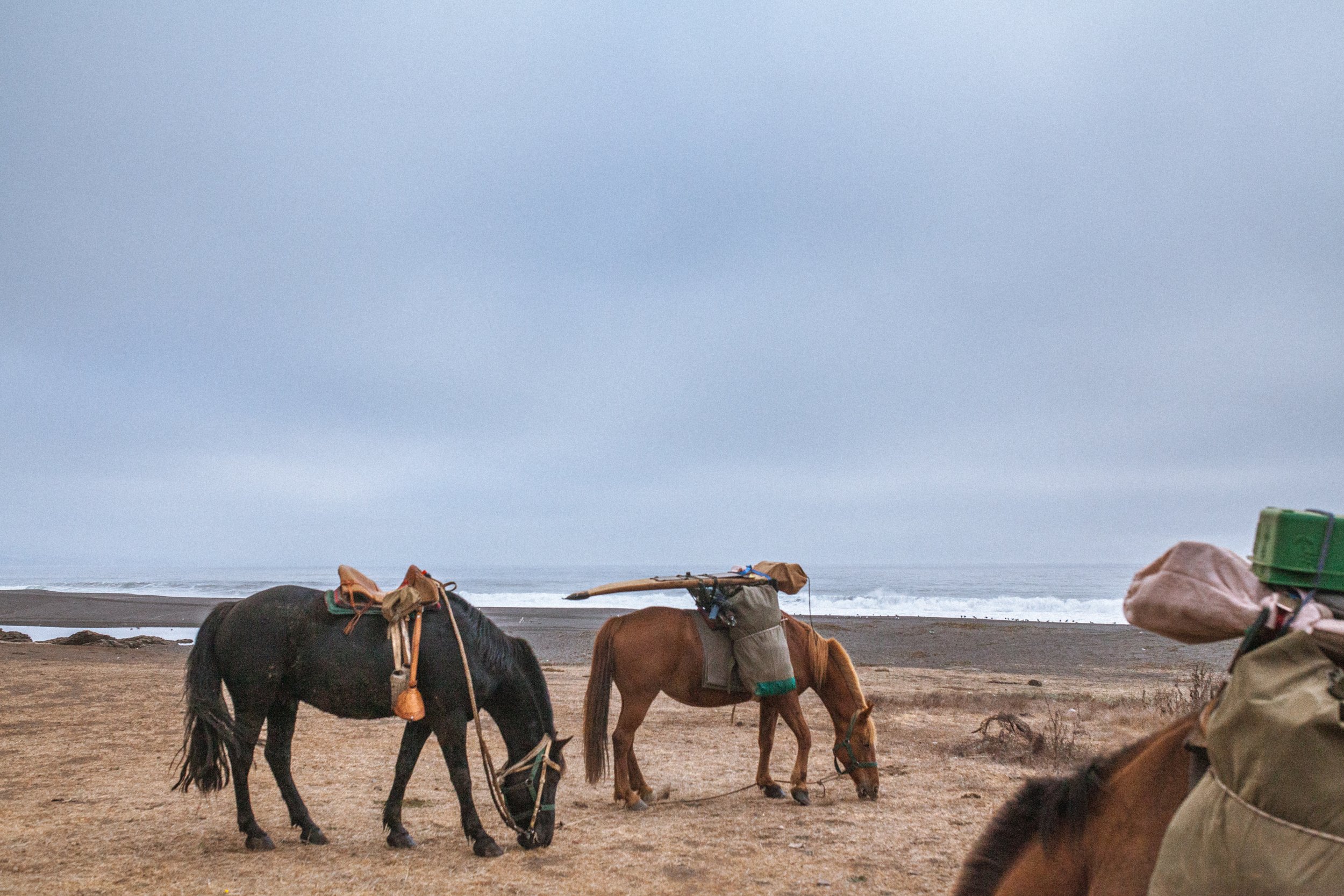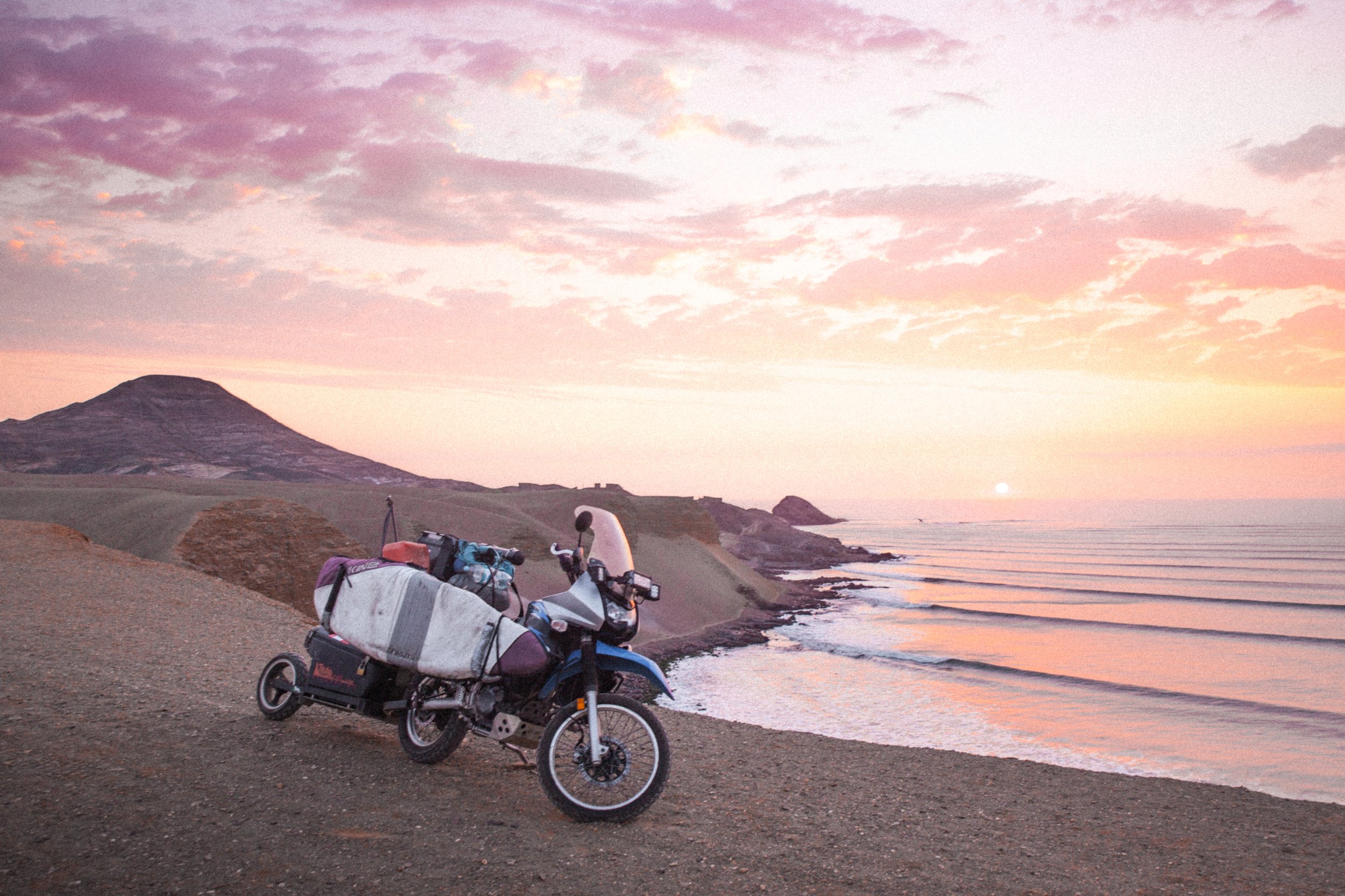Byron Talks: 'Road to Patagonia' Director Matty Hannon
The Road to Patagonia is a stunning, intimate and unflinching series of love letters within a documentary – firstly a love between two people, and secondly between humanity and the Earth.
The 16-year journey documented in THE ROAD TO PATAGONIA is both physically and spiritually profound. Can you share the most transformative moment during the filming process that shaped the narrative and your personal perspective on the connection between humanity and the Earth?
The most transformative moment that shaped the narrative wasn’t during filming, it was during the editing process, it happened while chipping away in a rusty old caravan on Hayters Hill Farm. We’d shot about 50 interviews from Alaska to Patagonia, and it was while going through them that I realised that my favourite interviewees were communicating the same message, and not just communicating, but compelling us to listen to what they had to say. In some cases, pleading with the world to listen.
They were asking us to listen to the world around us, the people around us, and not just human people, but the non-human people too, the trees, rivers, mountains and forests. Many of the interviewees were scarred and traumatised from the effects of globalisation. Oh, and I guess the film’s a love story too - about two people on a wild journey.
The decision to transition from motorcycles to horseback adds another layer of complexity to the journey. How did this shift influence the storytelling, and what challenges and rewards did it bring to the expedition?
It was a challenging but beautiful transition, challenging because we knew nothing about horses, beautiful because it opened our hearts to living alongside these huge and powerful animals. Instead of navigating between petrol stations and cities, we hunted green grass and clean rivers.
It shifted our compass and relationship with the land as well as the communities we passed through. There is an aching nostalgia in the people of Chile for a time not long ago when most folks had a slow, rural, horse-driven life - a life that was inherently more connected to nature.
The encounters with Zapatista rebels, Amazonian shamans and Mapuche leaders seem to have had a profound impact on the adventurers. Could you delve into the cultural insights gained during these interactions and how they shaped the documentary’s overarching message?
They did have an impact on us. Coming from Australia and Canada we’d been engendered with the paradigm that as ‘developed’ nations, we’re somehow better than the nations or communities that were ‘poor’ and primitive. Meeting with our interviewees made us realise that yes - while we do have a lot to be proud of in our home countries - we’ve also got a set of problems that we don’t know how to solve, and we’re refusing to listen to the wisdom of other, smaller voices.
One of saddest realisations for me, was realising that our home countries were often the ones perpetrating the oppression of these people, often by propping up crony leaders (eg. Pinochet or Suharto etc), not to mention third-world debt structures and unfair trade agreements etc.
The single largest insight for me, was that many cultures around the world recognise the living biosphere as alive and full of people (human and non-human people), each of them reliant on the other, held together by a web of life of which humans are only one strand of. Whereas capitalist world only recognises humans and corporations as people (the rest of the living world is just a resource) and Judeo-Christian religion definitively places humans as the apex of creation, while the other ‘beasts of the land, or birds of the sky, are to be dominated’.
The film beautifully captures the essence of human moments amid the vast landscapes. How did you navigate the balance between showcasing the breathtaking scenery and portraying the intimate, personal aspects of the journey?
We tried our best to tell a story, if a beautiful landscape shot wasn’t needed to tell that particular part of the story, then it was deleted. There were so many beautiful shots and moments that’ll never be seen by anyone.
The love story between you and Heather Hillier adds a unique dimension to the documentary. How did your relationship evolve during the expedition, and in what ways did it contribute to the overall narrative of THE ROAD TO PATAGONIA?
It’s a bit strange to have a love-story in a documentary I suppose, it wasn’t something we planned for, we randomly met each other surfing on a beach in beautiful British Columbia, and fell in love.
Filming was hard. There was no camera crew at any point - just us - which meant in order for us to get a shot with the two of us in it, we’d need to set up a tripod. We carried all the gear on the back of two motorcycles, and later four horses. We lived out of a small hiking tent for more than two years. The process of filming placed a lot of strain on our relationship. But Heather has changed my life in the best possible way, and she’s the only reason we’ve got a little film to share with the world.
Further screening information and tickets are available here.
The critically acclaimed documentary, THE ROAD TO PATAGONIA, is releasing in cinemas in April 2024, following a national Q&A tour with director, Matty Hannon. Receiving its world premiere at Byron Bay International Film Festival and garnering multiple accolades including the prestigious Audience Choice Award at the Melbourne Documentary Film Festival and Florida Surf Film Festival, the film is a stunning, intimate and unflinching series of love letters within a documentary – firstly a love between two people, and secondly between humanity and the Earth. Shot over 16 years and edited in Byron Bay, the result is an adventurous exposé on the more-than-human world, offering a physical and spiritual odyssey to better understand our place in nature.
The film follows Hannon on an incredible solo adventure, to surf the west coast of the Americas by motorbike, from the top of Alaska to the tip of Patagonia. But deep in the wilderness - alone with the wolves and the bears - the journeyer’s plans unexpectedly fall to pieces. After losing everything, and on the cusp of quitting he meets the girl of his dreams, a permaculture farmer named Heather Hillier who throws caution to the wind and sells her urban-farm to buy a bike of her own. Together riding south, the duo meet with Zapatista rebels, Amazonian shamans and Mapuche leaders whose salient words crack the adventurers’ cultural veneer, leaving them with existential questions.
The 50,000km surfing odyssey becomes beautifully complicated by their decision to downshift from motorcycles to horseback, presenting a relational approach to the breathtaking landscapes and a host of challenges that ultimately become extremely rewarding. Hannon and Hillier succeed in beautifully capturing deeply human moments during the world-first expedition.


